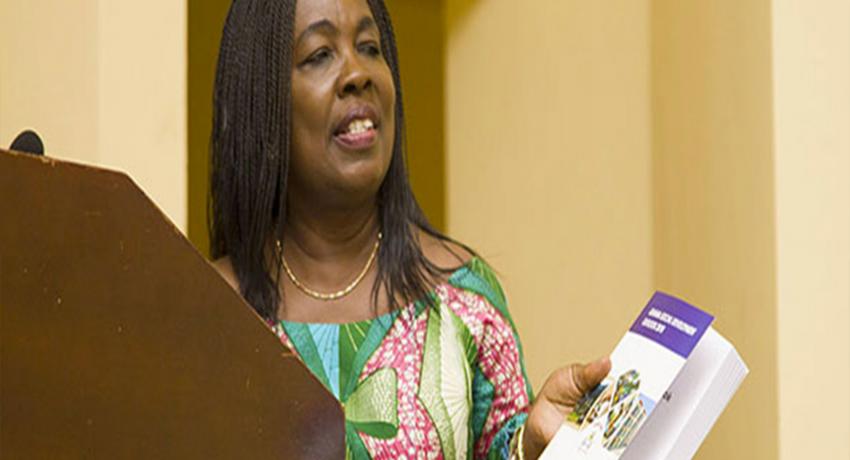The Institute of Statistical, Social, and Economic Research (ISSER), University of Ghana has launched the fourth edition of the Ghana Social Development Outlook (GSDO) on 1st of October, 2019 at the ISSER Conference Facility.
Prof. Peter Quartey, Director of ISSER, in his welcome address mentioned that the launch which was the fourth in the series of publications by the institute focused on the record of the state of social development in Ghana.

Prof. Peter Quartey, Director of ISSER
According to Prof. Quartey, the GSDO 2018 which follows the practice of previous GSDO publications, occupies a unique place in Ghana’s development discourse and provides a reliable record of the state of social development in Ghana through critical analysis of social policies and policy outcomes in three broad areas, namely; Quality of Life, Material Conditions and Sustainability.
The chairperson for the launch, Prof. Samuel Agyei-Mensah, Provost, College of Humanities commended the institute for a good work done and urged the public to patronize the book since it captures the current state of social development in Ghana.
Dr. Elizabeth A. Asante, Coordinator, Ghana Social Development outlook 2018 (GSDO 2018), ISSER, in her review of the book, mentioned that, the current edition has nine chapters, with different but inter-related topics on social development in Ghana. She noted that the book starts with an overview chapter, followed by the other key topics namely education, health, water and sanitation, housing, energy, environment, employment, governance and gender. She added that each chapter was reviewed by different faculty who are authorities in the above mentioned topics.

Dr. Elizabeth A. Asante, Coordinator, Ghana Social Development outlook 2018
The Ghana Social Development Outlook 2018 was officially launched by Prof. Takyiwaa Manuh, Institute of African Studies. She congratulated the University of Ghana for its persistent work and the efforts of ISSER in consistently publishing the GSDO.
She expressed excitement with the number of activities and seminars taking place in the university every week and said that it was a sign of a university that was active and alive. She further encouraged ISSER to adopt more innovative ways of identifying the social outlook of the economy while encouraging the University to enhance growth and development.

A cross-section of the audience at the launch

